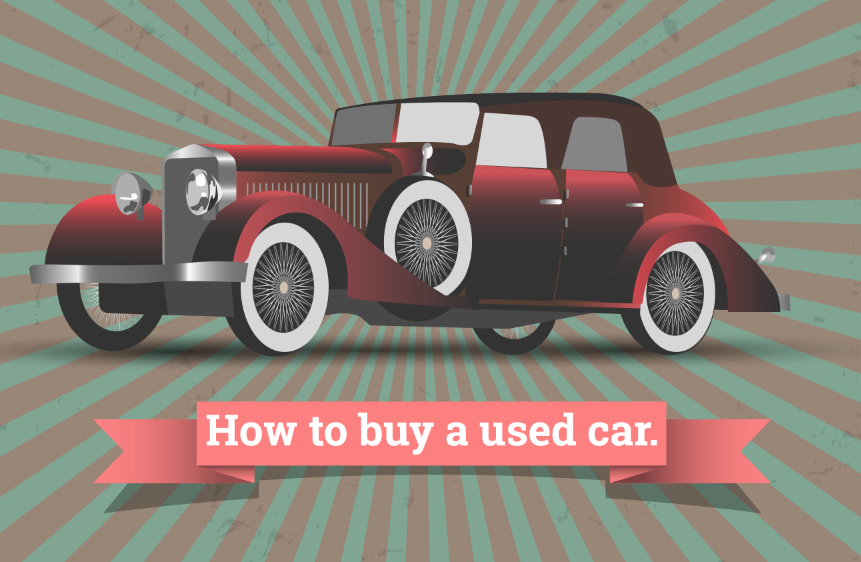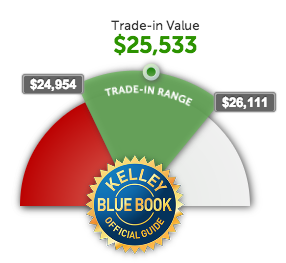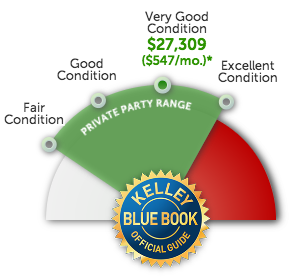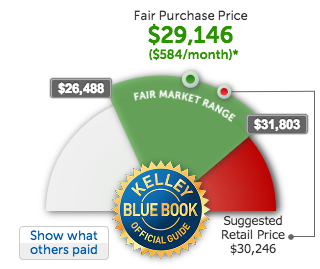 Are you in the market for a car, truck, van or SUV? Would you like to save thousands of dollars buying a perfectly wonderful car, from a dealer that you know and trust? Of course you would. You just need to arm yourself with some good information, then be willing to stand firm. Until then…
Are you in the market for a car, truck, van or SUV? Would you like to save thousands of dollars buying a perfectly wonderful car, from a dealer that you know and trust? Of course you would. You just need to arm yourself with some good information, then be willing to stand firm. Until then…
- Don’t be in a hurry. Don’t wait until you must have another car “right now.” Your timing will cause you to make bad decisions. Instead, plan ahead and give yourself at least a month to do your research.
- Determine which make and model you really want. And choose a plan B make/model as well. You’d love to buy one of them, and you’d be happy with the other.
- Make sure your general budget is reasonable for your choice of vehicle. See how much your favorite car is selling for on Craigslist. See dealers’ websites. If your budget is not reasonable, go back to step 2.
Brand new cars are expensive. There’s a lot of profit to be made by the manufacturer and the dealer. And we’ve all heard that the moment a new car is driven off the lot, it’s now a used car, and it immediately drops in value. This is absolutely true. If you compare the cost of a brand new 2014 car to the same model from 2013, there’s a significant difference. And the value loss you absorb is different, too:
- Let’s say I buy a brand new car for $30,000 and drive it for 10 years, and now it’s worth $10,000. My loss in value is $20,000 spread over 10 years… or $2000 value loss per year.
- If I buy the same car brand new for $30,000 and try to sell it next year, I might get $25,000 for it, which is a loss of $5000 in just one year.
- But if I buy a one-year-old used car for $25,000 and drive it for nine years, and now it’s worth $10,000… My loss in value is $15,000 spread over 9 years… or about $1666 value loss per year. Clearly this is the best financial scenario of the three… right?
- Buying a used car that’s 2 or 3 years old might provide you with an even greater annual savings, as long as the odometer (miles driven) is not far more than average. In other words, don’t buy a two-year-old car with 50,000 miles on it. Average is closer to 14,000 per year.
How much should you pay?
For decades, the default source for consumer car values was Kelly Blue Book. When I was a kid my dad actually had a little blue book from KBB. They are still a great source and they’re online at KBB.com. A similar site is Edmunds.com.
On these websites, you can quickly and easily determine a “how much you should pay for a car”… just follow the buttons and prompts on the site. HOWEVER, they are not really giving you the full story, and they’re not encouraging you to seek a better deal.
Cars have 6 different values.
- New Car Dealer Retail — This is the brand new car sticker price you might see on the window of a new car at the dealership.
- Certified Pre-Owned (CPO) Dealer Price — Price for a used car, on a dealer’s lot, and they’ve “certified” it, saying it’s in excellent shape, and it may come with an additional warranty.
- Dealer’s Used Car Price — Price for a used car that’s on a dealer’s lot, and the car is not certified. It may or may not have some factory warranty remaining.
- Private Party Used Car Price — The price you might expect to pay when buying a car from a neighbor or someone who’s displayed a car for sale on the street.
- Trade-In Price — The amount you might expect a dealer to GIVE TO YOU for your trade-in car, when you are looking to buy another vehicle.
- Wholesale / Auction Price — These prices are not available on kbb.com or edmunds.com, but they are available to dealers who buy cars from large auto auctions.
When buying a used car, the most important price you need to keep in mind is the Wholesale or Auction price. Even though you may not know that price and may not have access to this information, just realize that it’s almost always going to be LESS THAN the trade-in price that IS available on the research website. In other words, let’s say you went to kbb.com to research a 2012 Honda Pilot and you see that the trade-in value is $25,000, well, you can very safely bet that the Auction price is $24,000 or $23,000 or less.
Therefore, the Auction Price should be your starting price when you begin your negotiations. And here’s why…
The dealer buys the Honda Pilot at an auction for $23,000. He’s has to pay an auction fee so the auction house can make some profit. He might have to pay someone to transfer it or drive it back to the dealership. He is going to wash it, vacuum it, detail it, and shine the tires. He will likely change the oil, too. When it’s all said and done, his cost might be $25,000.
After it’s all cleaned up, he puts it on the lot with a sticker for $30,250, or the Dealer’s Used Car Price. If it’s certified, then he’ll charge more because he has to buy an additional warranty from the factory, AND he wants to make some profit on that warranty.
So… he paid $23k, added $2k of expenses, and he wants to sell it for $30k. Whatever you pay above $25k is his profit.
Alright, here’s a real world scenario. Someone has a 2012 Honda Pilot EX-L with standard equipment and 30,000 miles on it. The dealer may offer $25,533 as a trade in. Because he can get them cheaper at the auction, he will really try to buy it for $22,000 – $25,000. But he’s not likely going to pay much more, unless it’s a really hot vehicle that he knows he can sell easily for big profit.

If your neighbor had that same Honda Pilot, she will wash it and vacuum it, and she might try to sell it to you “Private Party” for $27,309… But you could likely negotiate it down to $26,000 or $25,000 depending on how desperate she is to sell, and how much she still owes on it. And it will still come with the remainder of the factory warranty.

That same car on a dealer’s lot might be priced around $29,146 – $30,246. Yes, so the car the dealer bought for $23,000 as a trade-in, he’s now selling for $30,000.

Why on earth would you pay $30,000 for a car that you can get from a neighbor for $26,000 or $25,000? Both cars came from total strangers. In both cases, the cars are still under warranty. The dealer knows you have options, and if he only paid $23,000 at the auction or $25,000 as a trade-in, there’s a good chance he might get rid of it for $26,000 and sell it to you… for less than Private Party value.
But you have to put your foot down on the price and be firm. The longer you sit and negotiate, the more he knows you want the car, and the more he knows you are negotiable and are willing to pay more. If you’re not at a happy price within 30 minutes, get up and walk away. There are plenty of cars out there. Plus, if you buy at a price higher than you wanted, you may have long term regret that’s just not necessary. You may as well be happy and buy for the right price.
In my opinion your best overall game plan is to:
- If you plan to finance your car, first go to a credit union and qualify for a certain amount. DO NOT share this amount with anybody. Think of it as cash in your pocket.
- Go to a dealer for a car that’s 2 years old, avoiding that new car value drop.
- Be respectful, firm, and friendly.
- Having already done your research on the 6 different values for this car, you know what you should pay.
- Start your negotiation price near the Auction Value… or less than the Trade in Value.
- Don’t discuss payments. Discuss a CASH sales price. After all, you have a secret amount of cash in your pocket, albeit perhaps from the Credit Union.
- Pay no more than “Private Party” price depending on realistic condition.
- AFTER the CASH sales price is agreed, THEN negotiate the value for your trade-in, that is, if you plan to get rid of a current car and you don’t want to donate it or sell it private party. Be keenly aware of what it’s worth in your neighborhood. You must shoot high on your trade-in price and stick to your guns. Since you’ve already agreed on a cash price for the newer car, it will be harder for the sales dude to walk away from your higher trade request.
- Make a deal.
- Don’t fall for the nickel-and-dime sales job when you sit in the finance office. They make a ton of money in there.
- Take care of your new car, and plan to drive it for many years.
If you do plan to buy a car from the neighbor, be sure to take it to a trusted mechanic for a $50 once-over. If it all checks out, get your new car cleaned/detailed by a professional for $200 and it will be as clean or cleaner than what the dealer would have done to it. You’ll get that car smell!
You’d still rather buy a new car? Okay, but in six months it will be a used car…
Embarrassed to buy a used car? Most people buy used homes and sleep in them every. single. night. You can’t buy a used car?

You must be logged in to post a comment.